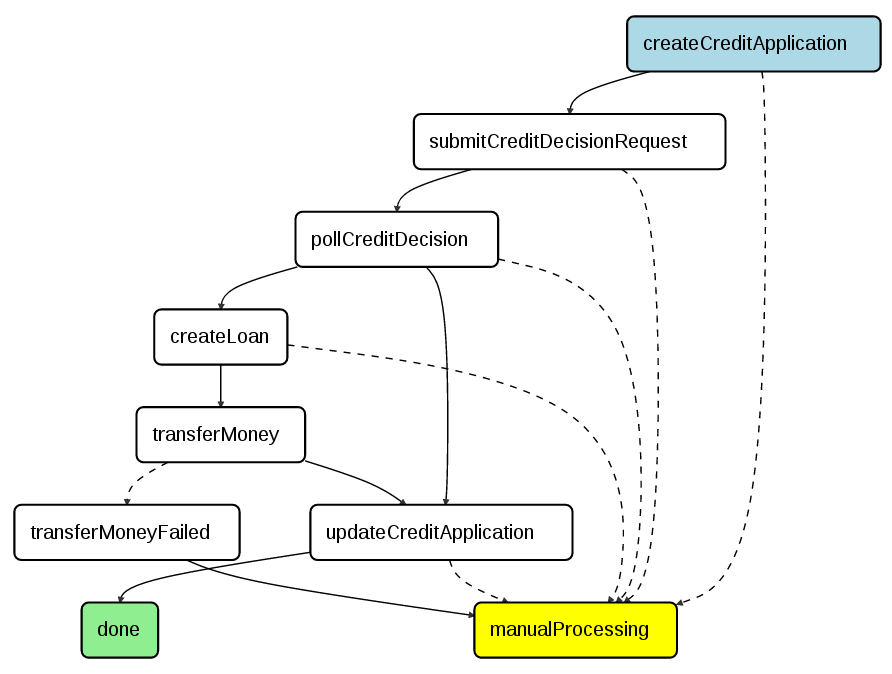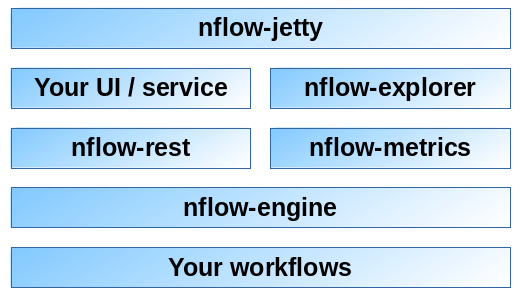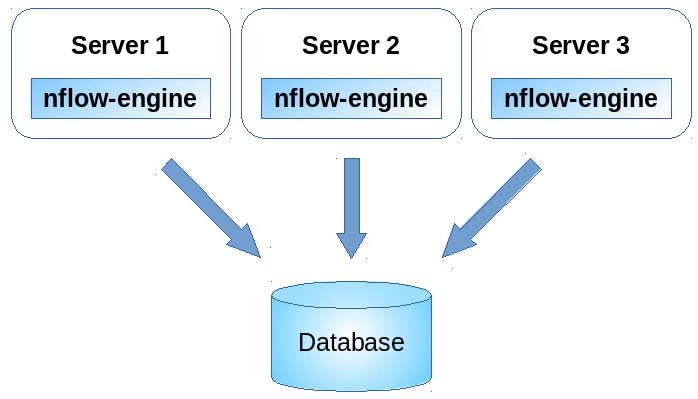public class DemoWorkflow extends WorkflowDefinition {
private static final State BEGIN = new State("begin", WorkflowStateType.start);
private static final State PROCESS = new State("process");
private static final State DONE = new State("done", WorkflowStateType.end);
private static final State ERROR = new State("error", WorkflowStateType.manual);
public DemoWorkflow() {
super("demo", BEGIN, ERROR);
permit(BEGIN, PROCESS);
permit(PROCESS, DONE);
}
public NextAction begin(StateExecution execution) {
return moveToState(PROCESS, "To process state");
}
public NextAction process(StateExecution execution) {
return stopInState(DONE, "To done state");
}
}



